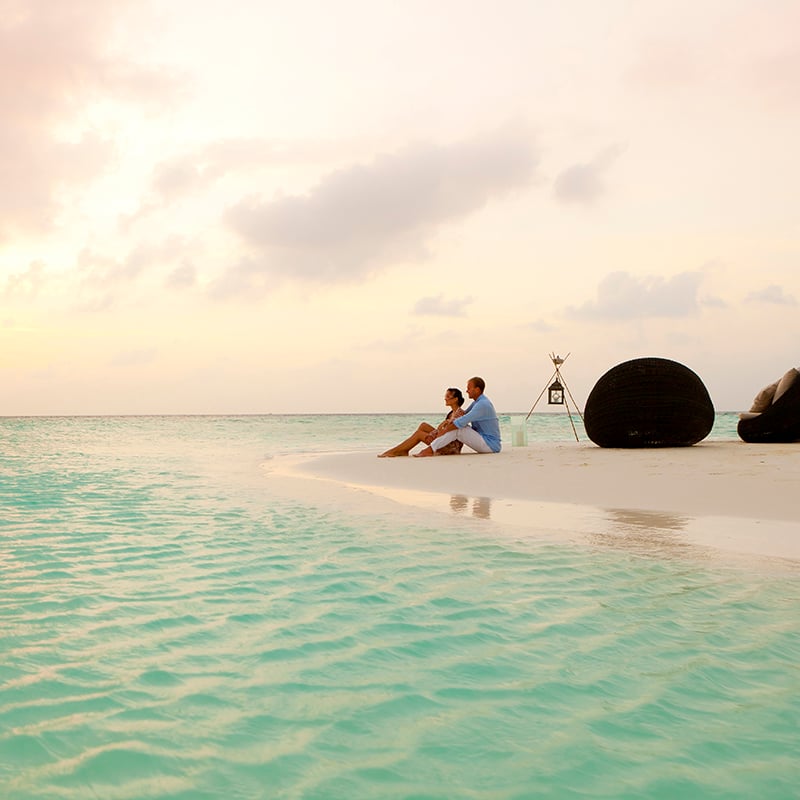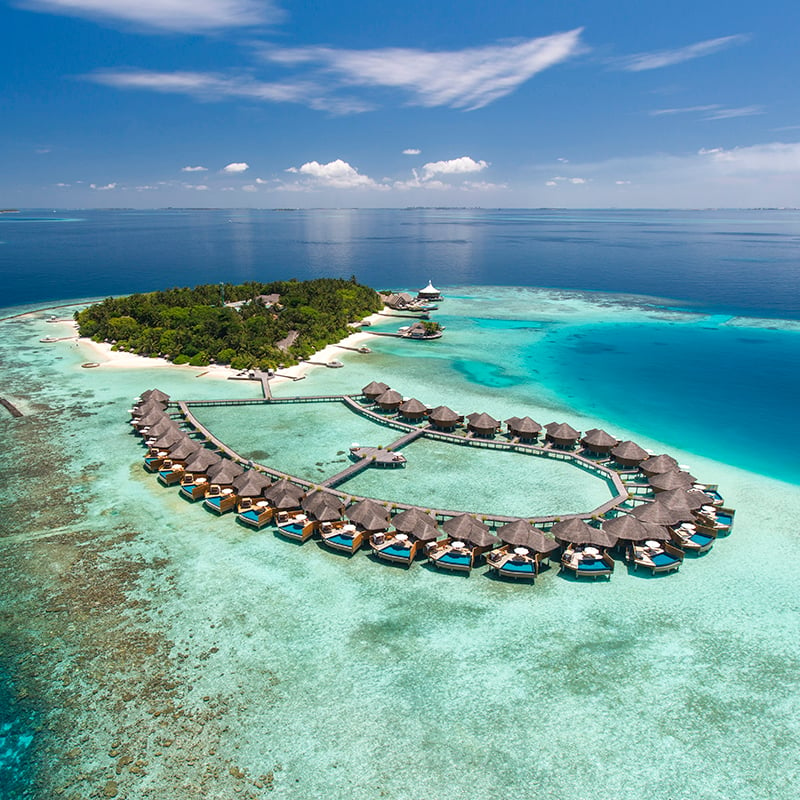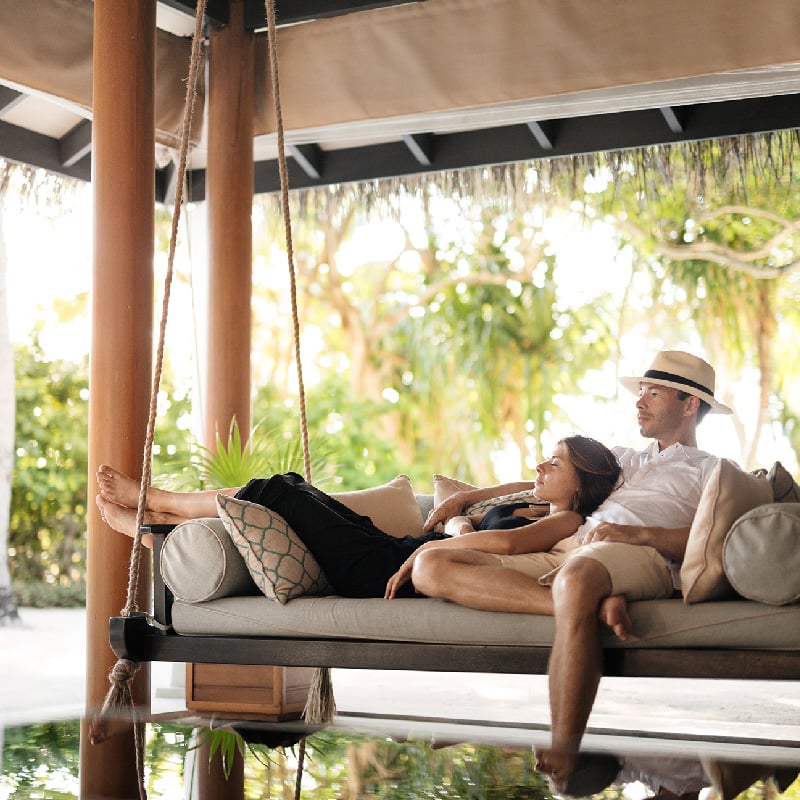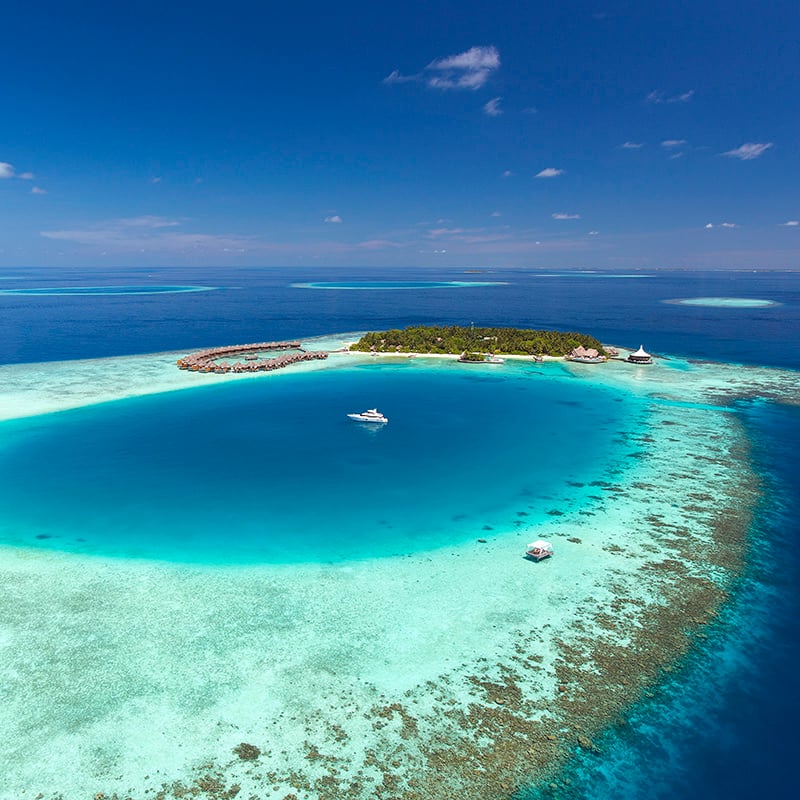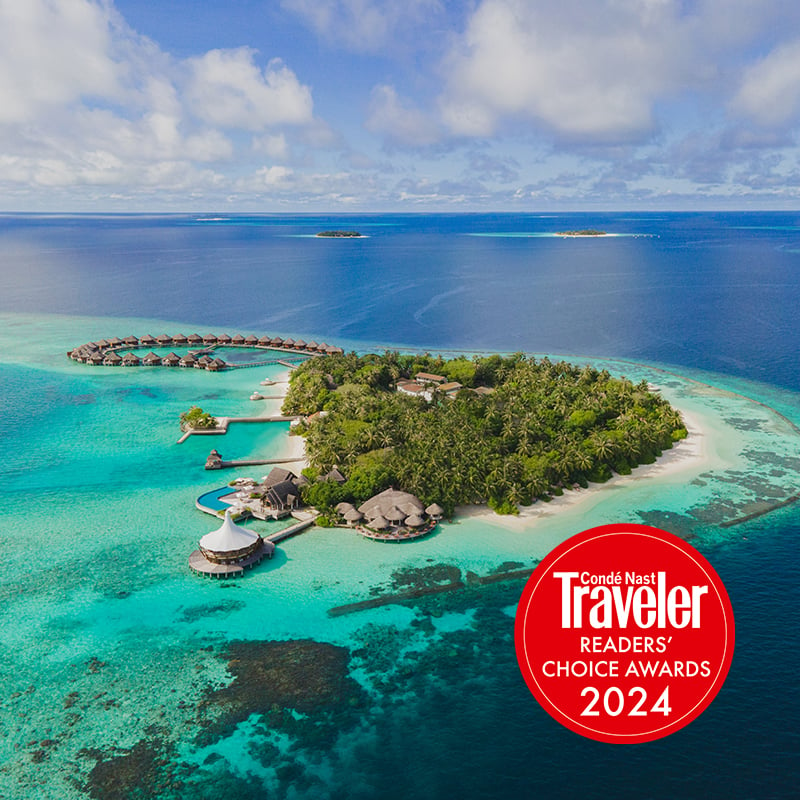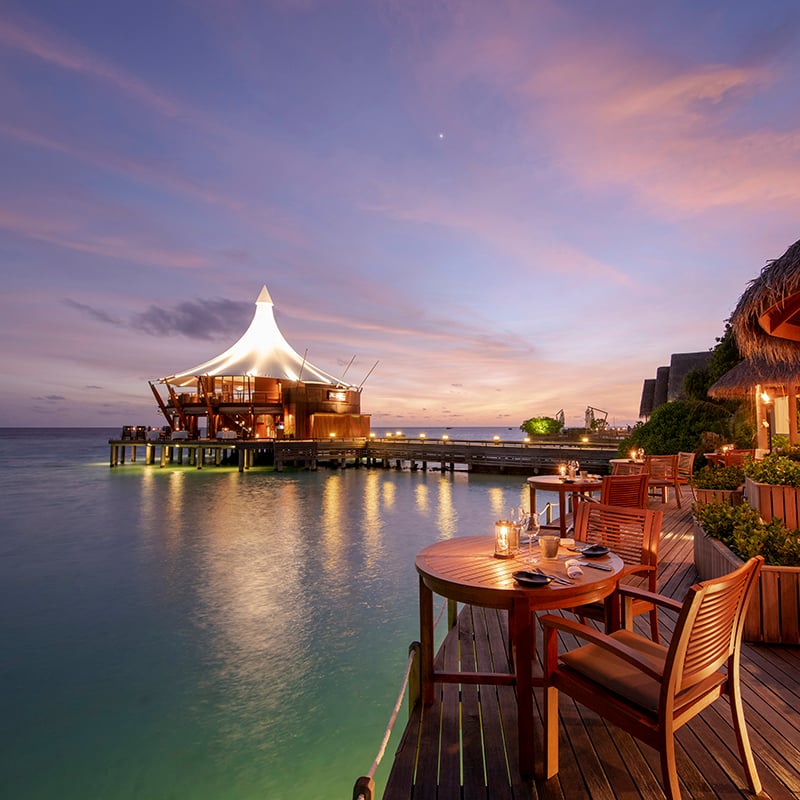CELEBRATE THE NATURAL AND PRISTINE ENVIRONMENT AT BAROS MALDIVES
5 June 2022 | All Blogs, Destination, Experience

At Baros, we feel deeply connected to nature, our preserved coconut palms, and the cocooning canopy of trees. We are intrinsically linked to the ocean – it surrounds us – exploring the house reef, we discover turtles, eagle rays and reef sharks thriving in their natural habitat. We sail in search of isolated sandbanks and deserted islands, we build sandcastles on the beach and dive with playful manta rays. As much as we gain enjoyment from our beautiful marine environment, we need to be aware that the ocean’s future is also our future, and we need to protect its biodiversity.
2022 marks the 50th anniversary of the United Nations Environment Programme. It also marks the 50th year of tourism in the Maldives, a success story of sustained growth and environmental nurturing. This year’s World Environment Day theme on 5 June is “Only One Earth” which focuses on the need to live sustainably in harmony with nature. “Only One Earth” was profoundly the motto of the first World Environment Day, fifty years ago.

Also in June is the United Nations World Oceans Day, which is celebrated on 8 June. This year’s theme highlights Revitalization: Collective Action for the Ocean.
Baros’s commitment to its marine environment is steadfast to honour the United Nations’ global environmental initiatives. Our house reef protects the beach and crystal-clear lagoon. It also supports a multitude of tropical fish, crustaceans and shellfish. Coral is sensitive to extreme weather, which can cause bleaching, sudden environmental changes and damage caused by fish.

The Baros resident marine biologist team utilise various techniques to support the health of the coral house reef and its inhabitants, believing that every species has a protective role to play. Coral restoration includes using floating lines, coral frames on which corals can grow and coral cube planting, whereby fragments of living coral collected from the sea bed are attached to the cubes, which are then planted in predetermined areas of the reef that need the most support. These broken coral pieces would not survive without this transplantation process. The Coral Cubes are made from reusable wooden moulds, and no plastic elements are used to attach the coral branches. In other words, no harmful substances are used, and no waste is left behind, making this technique wonderfully environmentally friendly.
These UN environmental programmes remind us to take care of our marine environment and its inhabitants to help conserve and utilise this natural resource in a more sustainable manner.
The ocean nurtures and supports us all. By working together, we create harmony with the ocean by no longer depleting its resources, restoring its vibrancy and generating new life.
Join our resident Marine Biologist team and do your part to support the health of the Baros house reef by planting your very own coral. Find out more about our initiative here https://www.baros.com/environment/coral-transplantation and get in touch with us at [email protected].
 English
English  РУССКИЙ
РУССКИЙ  DEUTSCH
DEUTSCH  简体中文
简体中文  Spanish
Spanish 